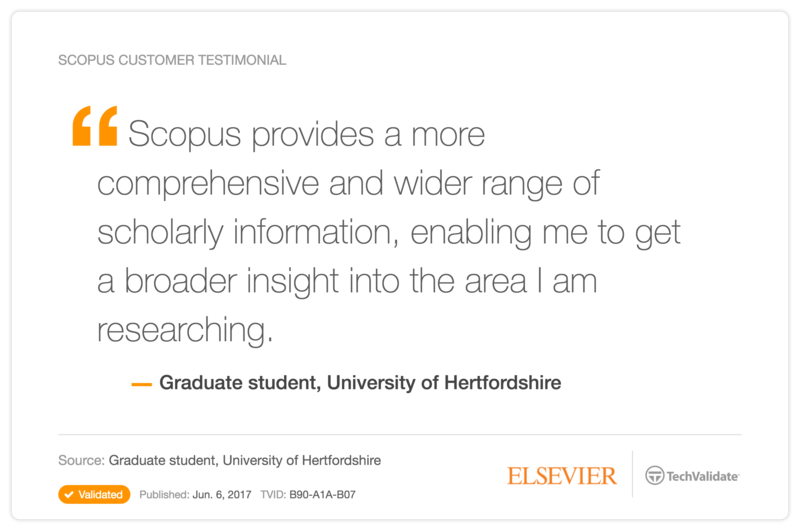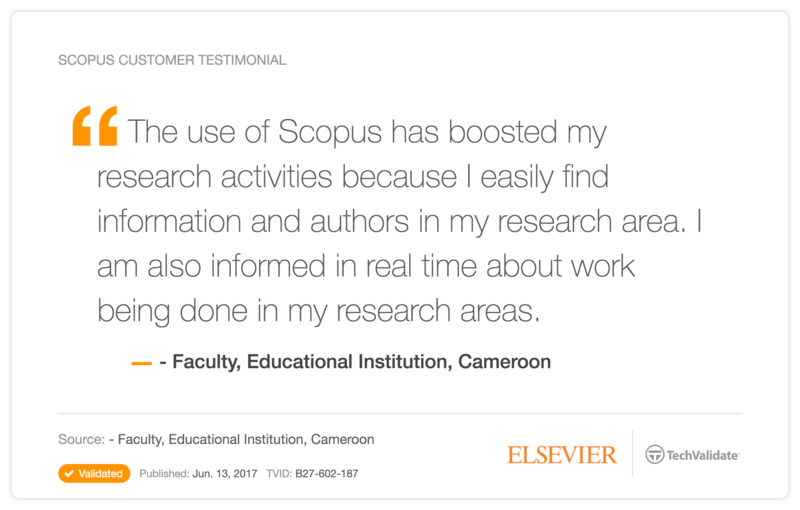How Scopus Powers Research Solutions for Experts Worldwide
It’s possible to keep up-to-date and avoid information overload; here’s how
It seems to get harder and harder to be a researcher, not least because of the ever-growing volume of studies being published. You’re under pressure to keep up with all the latest findings (not only in your own discipline but often in others that might impact your work). And it’s not enough to know about specific results and scour huge volumes of data; you need an overview of the trends, emerging data sources and potential collaborators.
All of this while also managing your career.
It’s exhausting; just imagine if you had to do it manually.
Luckily that’s not the case: there are tools, platforms and databases you can use to stay on top of the information and not get overloaded. Like Scopus, the world’s largest abstract and citation database of peer-reviewed scientific literature. It has smart tools to help you track, analyze and visualize findings across more than double the globally published research than other platforms– exactly what you need to succeed.
Innovative discoveries begin with insights into relevant results
The coveted outcome of research is the discovery, the novel idea, the innovative product; it’s not always easy to get there, but it is possible. Getting to the ‘Eureka!’ moment starts by understanding the current state of the field. By recognizing trends, discovering sources and connecting with collaborators, you can join the dots and make leaps in your research to unexpected innovations.
This is where Scopus can help, by giving you the tools to quickly identify the most relevant information. Scopus has a library of over 71 million articles and 1.4 billion cited references, comprising 3.7 terabytes of data; it’s a lot to navigate, so the search options – including document, author and ORCID search – are invaluable for finding the publication you need. If there’s still too much to sort through, you can narrow your search even further by choosing from over 100 search fields.
You can get a clearer picture of your search results with visual reports, which break down the information into categories by year, source, author, subject area and other attributes. Records also contain article metrics, including PlumX Metrics, to evaluate citation impact and levels of community engagement around an article.
Advance your own work by staying up to date with global research
With so much research being published every day, keeping track can end up taking over; with Scopus, you can quickly identify key trends, collaborators, relevant sources, citations and cited references, without letting your own work suffer.
You can browse an alphabetical list of more than 23,000 active titles including journals, book series, trade publications and conference proceedings, across 330 disciplines. And once you’ve found useful documents, you can save them for later use or export the data to Mendeley, RefWorks, EndNote or other reference management software. You can also create your own custom alerts, which means the information comes to you.
From Physics and mathematics, to engineering and technology, to health and medicine, to social sciences, arts and humanities, Scopus puts millions of documents at your fingertips, empowering you to uncover trends, find collaborators, and analyze search results with a single click. Scopus gives you broad overviews and deep analyses – everything you need to understand your research world.
It makes keeping up with everything easier, so you can focus on what matters.



